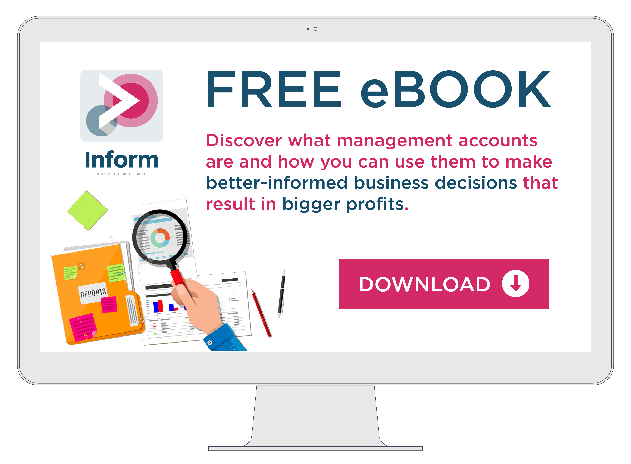BLOG
Making Tax Digital: Why you need to prepare for the big tax shake-up now…

Whether you’re a small business, a big multi-national or a sole trader, the way in which you file your tax returns is soon set to change.
That’s because HMRC is introducing its new ‘Making Tax Digital’ programme - which will move away from the concept of the annual tax return, and instead require businesses to submit tax information online every three months.
If that just sounds like four times the work, don’t panic. Under the initiative, businesses will be issued with a digital tax account linked to their bank data, automatically pulling in real-time financial information to save you time.
All you’ll have to do is check the data every quarter, and provide any additional information that HMRC requires. Among other things, it means you won’t have to wait until the end of the year to know how much tax you have to pay.
So far, so good. But to maximise efficiency, you’ll need to be hosting your accounts on software that has the ability to file returns online.
That means if you’re currently using desktop software like Quickbooks or Sage, running your business via Excel spreadsheet or perhaps not even keeping digital records at all, you should be making the switch to a cloud-based platform.
And the time to do it is now.
Time is ticking…
HMRC first introduced its ‘Making Tax Digital’ initiative a couple of years ago, but after one false start and several changes to the timetable, the pilot scheme is finally set to launch in April 2018.
Then, from April 2019, legislation will compel the first businesses (those with a turnover above the VAT threshold) to start filing quarterly VAT returns online.
A year later in 2020, other businesses (including freelancers and sole traders) will be expected to join the digital revolution.
If you’re already using online accounting software like Xero, the transition to quarterly digital filing should be painless. Platform providers are already hard at work making tweaks behind the scenes, working closely with HMRC to make sure all the necessary functionality is in place for go-live.
But if you’re not keeping digital records, then don’t leave the switch to the last minute. You’ll need time to choose a platform and then to get up to speed with your new software well before the deadline.
Besides, the benefits on offer from cloud accounting are vast - and the sooner you make the switch, the sooner you can start taking advantage of better business insight.
Why going digital is a bonus not a burden…
Long before Making Tax Digital came into existence, savvy business owners were moving their accounts online - for two key reasons.
Firstly, cloud accounting gives you access to your accounts wherever you go. At home, on the train, on holiday - as long as you have an internet connection and a device (laptop or mobile), you can view, edit and assess your books on the go.
Secondly, online accounts enable instant, real-time data sharing with your accountant. Whatever you can see, your accountant can see.
That means you can get timely advice from your accountant based on accurate, up-to-date financial information, leading to better cashflow management and tax planning, and helping you to make better business decisions.
So, with Making Tax Digital deadlines approaching, switching over to a cloud-based accounts platform shouldn’t be seen as a burden. It’s an opportunity to get better control of your business, and superior support from your financial advisor.
Where to start with the switch?
Once you’ve familiarised yourself with the Making Tax Digital timetable, you’ll need to decide on a platform for your online accounting.
In time, it’s likely that HMRC will provide some free basic software for this, to help businesses stay compliant without having to explore the commercial market - but for the reasons outlined above, taking this option would be a huge opportunity missed.
Of the best-known commercial platforms, Sage and Quickbooks are predominantly desktop programmes with only limited online capabilities, leaving Xero as the front-runner. Designed and developed solely as a cloud platform, Xero is built for purpose and highly intuitive - offering arguably the easiest learning curve of them all.
If you’re using Sage or Quickbooks already, the natural temptation may be to stick with what you know and forego the extra online functionality. However, it’s actually incredibly easy to transition across to Xero, thanks to third party applications like MoveMyBooks.
Seek out a Certified Xero accountant and they will help you make the switch painlessly, while providing any training you might need to get the very best out of the new platform.
Don’t leave it too late to seek support though, as tech-savvy Xero accountants are likely to be in high demand as the deadline approaches.
In summary: Act now…
For businesses with turnover above the VAT threshold, there’s only around 14 months to go until ‘Making Tax Digital’ becomes mandatory - so now’s the time to act.
Speak to your accountant and see what plans they have in place for the new initiative, or contact us to find out how Xero can help you fulfil your obligations and transform your business at the same time.
Read more of Inform's tax blogs:
How cloud accountants can improve your business performance
How to prepare management accounts using Xero
Inform Accounting acquires Sutton Coldfield-based Jowett & Co




.jpg?width=1500&height=1000&name=amy-hirschi-K0c8ko3e6AA-unsplash-(5).jpg)

